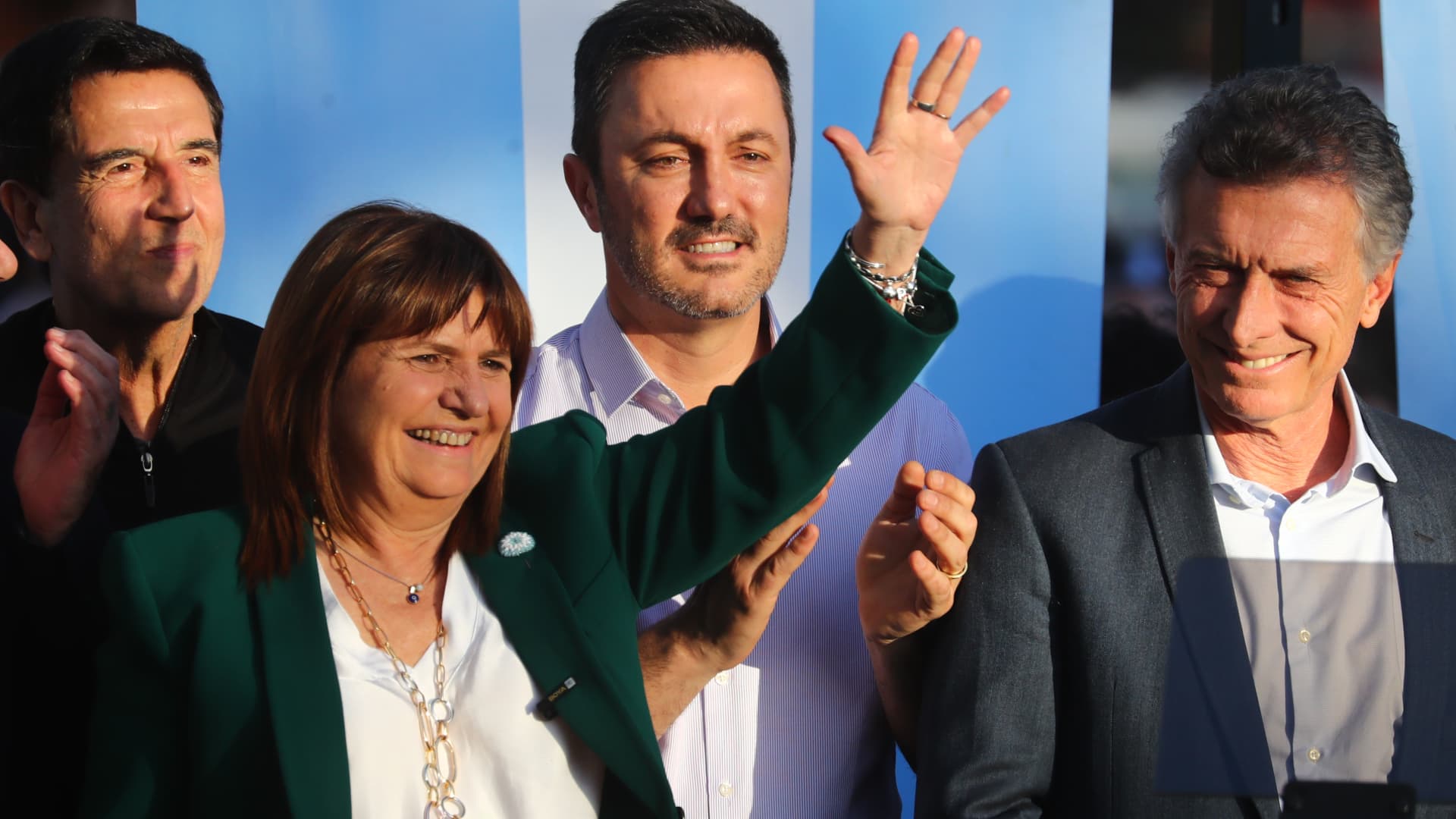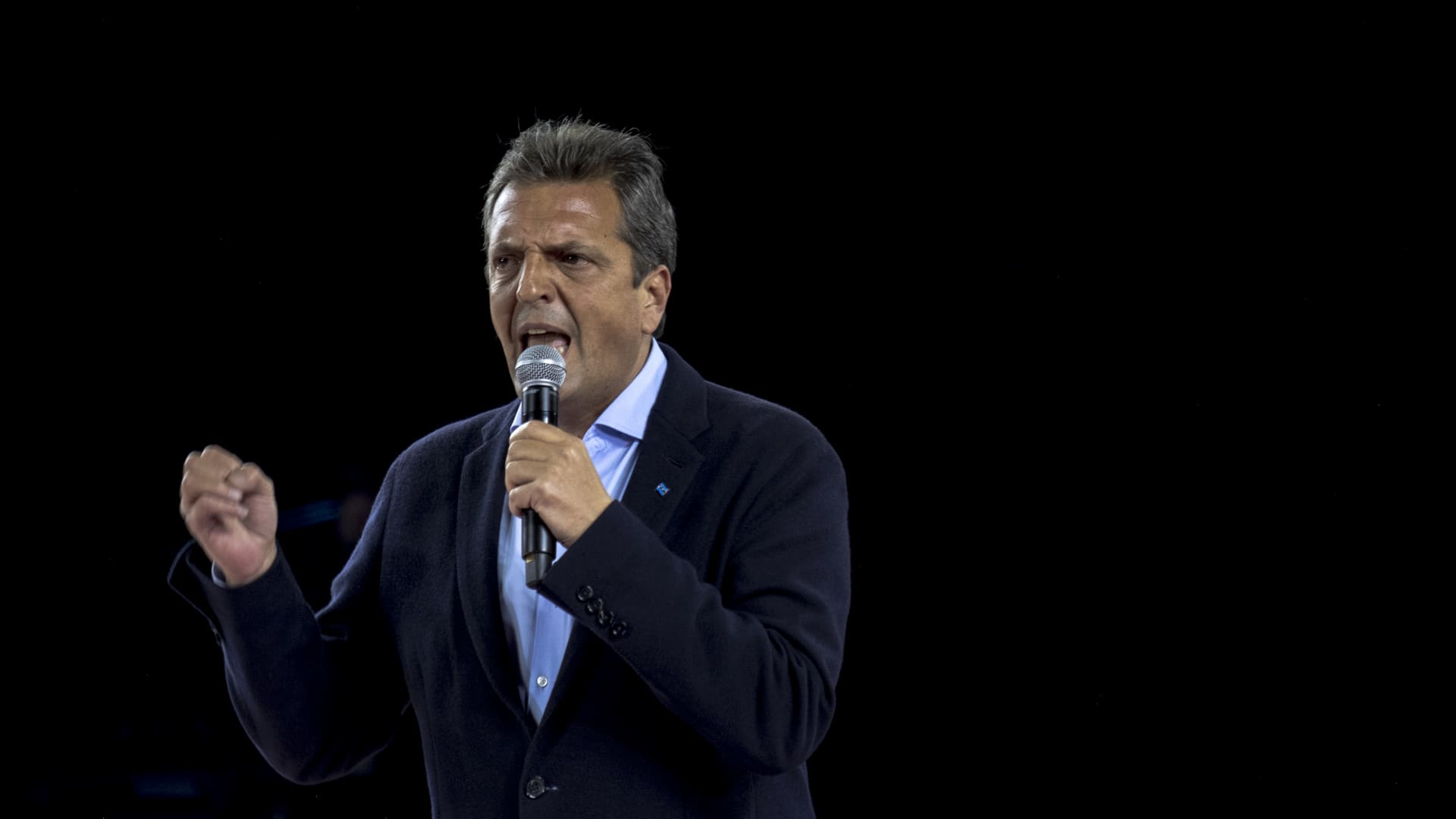
- Voters in Argentina will head to the ballot box on Sunday in what is widely regarded as the most open-ended presidential race since the country returned to democracy 40 years ago.
- It follows a shock primary win for far-right frontrunner Javier Milei.
- The closely fought contest comes as Latin America's third-largest economy is in the grip of a profound economic crisis.
Voters in Argentina will head to the ballot box on Sunday in what is widely regarded as the most open-ended presidential race since the country returned to democracy 40 years ago.
WATCH ANYTIME FOR FREE
>Stream NBC10 Boston news for free, 24/7, wherever you are. |
The first-round presidential vote follows a shock primary win for far-right frontrunner Javier Milei, a libertarian outsider who has pledged to dollarize the economy, abolish the country's central bank, and sharply reduce state spending.
Milei, a 52-year-old economist who is often compared to former U.S. President Donald Trump or Brazil's ex-leader Jair Bolsonaro, is the candidate to beat after picking up the most votes in the Aug. 13 primary. Milei is standing for the La Libertad Avanza party.
Get updates on what's happening in Boston to your inbox. Sign up for our >News Headlines newsletter.
His main rivals are current Economy Minister Sergio Massa, who represents the ruling Union por la Patria coalition, and former Security Minister Patricia Bullrich from the center-right Juntos por el Cambio coalition.
The closely fought contest comes as Latin America's third-largest economy is in the grip of a profound economic crisis.
The purchasing power of the South American nation has been ravaged by an annual inflation rate of 138%, while two in five Argentines now live in poverty and key agricultural areas have been hit by a historic drought.
Money Report
Analysts at political risk consultancy Verisk Maplecroft told CNBC that Argentina's upcoming vote was essentially a three-horse race between Milei, Massa and Bullrich, and will likely require a second-round run-off next month to determine the country's next president.
As for the outcome of the vote, however, the analysts said it was essentially anyone's guess.
"It is a very difficult one in terms of the outlook. The one thing we are more confident about is the need for a second round," Jimena Blanco, head of Americas at Verisk Maplecroft, told CNBC.
"It is probably, I would say, the most uncertain election Argentina has faced since the return to democracy," she added.

Mariano Machado, principal analyst for the Americas at Verisk Maplecroft, echoed Blanco's view, noting that Argentina's pollsters have repeatedly been caught out in recent years.
The surprise primary win for Milei, which is generally a good indicator of who will win the presidential vote, resembled the pollsters' failure to predict a landslide defeat for former President Mauricio Macri four years earlier.
"I think it goes beyond uncertainty," Machado said. "It's like trying to navigate in the mist but every single instrument you have is either broken or completely unreliable."
Milei vs. Massa?
The race to replace Argentine President Alberto Fernandez, who is not seeking re-election, is unlikely to be decided this weekend. Instead, the top two candidates from Sunday's vote are expected to contest a runoff vote on Nov. 19.
For a candidate to win outright on Sunday, they must obtain more than 45% of the votes or over 40% with a more-than 10-point lead over the second-place candidate. The winner of the vote will govern for the next four years, through to the end of 2027.
"Whoever wins, they are all inheriting the same economy. That's the problem," Verisk Maplecroft's Blanco said.

Nicolas Salidas, senior analyst for Latin America and the Caribbean at the Economist Intelligence Unit, a research and analysis company based in London, said Milei is likely to receive the most votes at the weekend, with Massa poised to come a close second.
"Milei's abrasive language against the political establishment and radical free market politics, especially his promise to dollarise the economy, has struck a chord with voters exhausted by the failure of the two main governing parties to resolve Argentina's economic crisis and high levels of corruption," Salidas said in a research note.
Massa remains a "competitive candidate" despite his failure to rein in inflation, Salidas said, in part because of the minister's reliance on support from the ruling Peronist bloc — a dominant political force in the country for the past 60 years.
Ultimately, however, the Economist Intelligence Unit says Massa is unlikely to be able to prevent a Milei presidency.
"Our view is that in a head-to-head match up, Milei would defeat Massa," Salidas said. "Massa's baggage as an unsuccessful economy minister, representing the deeply unpopular government as well as his personal unpopularity will hinder his chances of winning."






